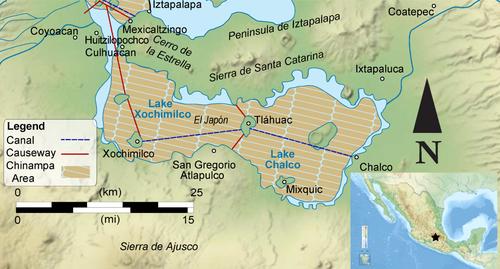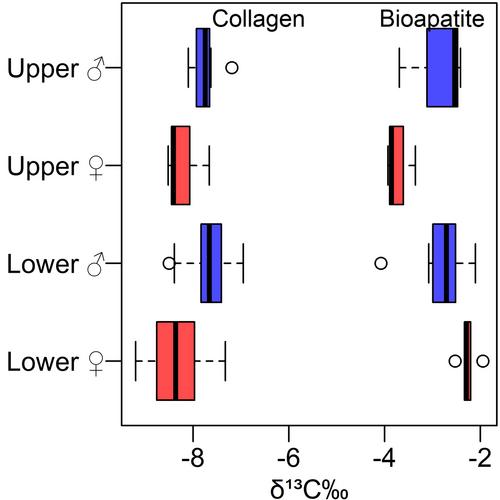Early Colonial Diet in El Japón, Xochimilco, Mexico: Examining dietary continuity through stable isotope analysis of bone collagen and bioapatite
Abstract
Objectives
Early colonial documents from central Mesoamerica detail raising and planting of European livestock and crops alongside native ones. The extent to which Indigenous people, especially of the rural commoner class, consumed newly introduced foods is less known. This gap in knowledge is addressed through stable isotope analysis and comparison to published archaeological botanical, human, and faunal data.
Materials and Methods
Stable isotope analysis of bone collagen and bioapatite is applied to 74 skeletal samples of Indigenous human remains representing Colonial period individuals from El Japón—a farming hamlet in the Xochimilco area—to provide insight into long-term individual dietary practices in the context of a rapidly transforming Mesoamerican world.
Results
Carbon isotope ratios in collagen (δ13Ccollagen) average −8.10/00 VPDB (SD 0.55), while δ15N averages 8.90/00 AIR (SD 0.50). δ13Cbioapatite averages −2.90/00 VPDB (SD 0.60). Modest increase in carbon isotopic diversity is observed among more recent males from El Japón when compared to earlier males and females.
Discussion
Based on the isotopic results, it is estimated that the individuals of El Japón consumed maize or other C4 plants as a central source of carbohydrates. Dietary protein was largely supplied through domestic maize-fed fauna but potentially supplemented by wild terrestrial and aquatic fauna and fowl. Similarity in skeletal isotopic composition between precontact Mesoamericans from other sites and El Japón individuals of both earlier and later stratigraphy is interpreted as continuity in local diets and foodways despite potentially available European alternatives. Colonial taxation demands on preexisting agricultural regimes may have incentivized maize production, thus indirectly contributing to the maize-centered aspect of local foodways.



 求助内容:
求助内容: 应助结果提醒方式:
应助结果提醒方式:


